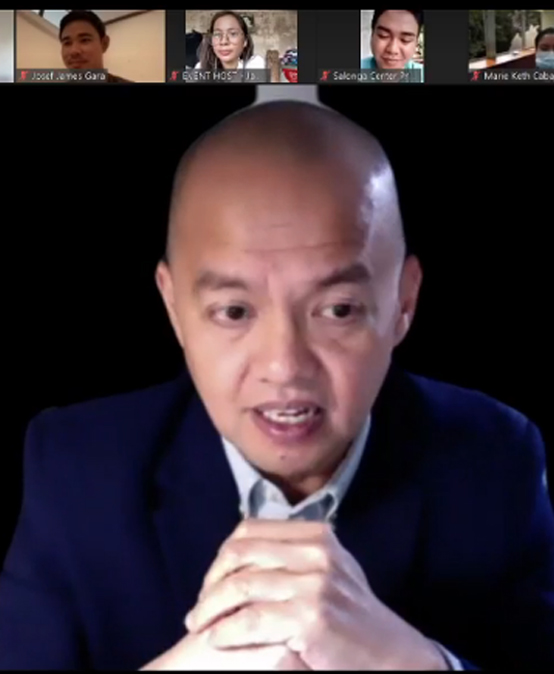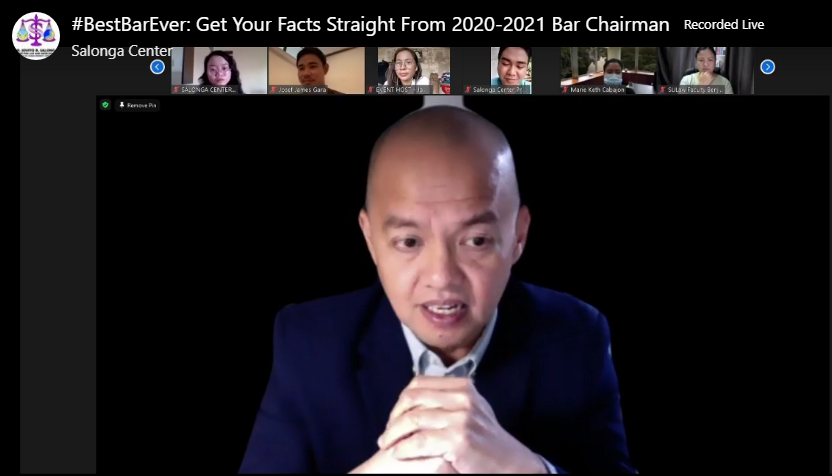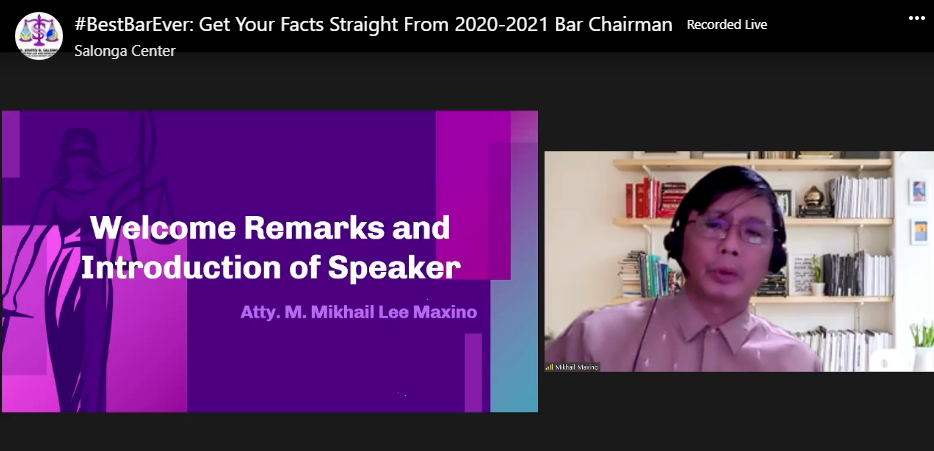
SU holds bar exam talk with Associate Justice Leonen
“No effort will be spared to transition to a localized, digital, inclusive, but proctored, bar examination,” said Hon. Marvic Mario Victor F. Leonen, Supreme Court Associate Justice and 2020-2021 bar examination chair, during the virtual talk organized by Silliman University (SU) Dr. Jovito R. Salonga Center for Law and Development.

The talk, held via Zoom last January 23, 2021, aims to help bar takers and the legal education community prepare by discussing developments and challenges related to this year’s bar examinations.
The bar examinations will be held in November 2021 after it was postponed last year due to the COVID-19 pandemic.
Aside from working around the limitations set by the pandemic, Leonen said the attempt to shift to a localized and digital bar examination aims to address challenges faced by bar examinees and make the examination more “equitable and inclusive.”
Lesser cost for examinees
Localizing the examination, said Leonen, means that the examination will not only be collected in the cities of Manila, Cebu, and Davao.
“We are going to try to have as many testing centers as the system can bear…the attempt is to reduce the expenses for each of the bar applicants,” he added.
Leonen said a localized examination would lower the cost of taking the examination for those who live geographically far from examination centers.
“Localizing the bar…which requires digitalization, will therefore be more inclusive than the others,” he added.
Better chances of passing
Leonen said the digitalized examination will also eliminate handwriting as a factor affecting exam evaluation.
The digitalization, Leonen added, takes into consideration that most legal documents are now prepared digitally rather than by handwriting.
Without factors like handwriting and the higher cost of taking the examination for those living far from Metro Manila, Leonen said there is a “better chance of passing the bar.”
“Most lawyers are concentrated in very heavily populated metropolitan areas, and the more that I can allow somebody from the province…to pass the bar, [there are] more chances [for us to] have more lawyers where it is most needed by those who are underprivileged. That’s why I am trying to do localized bar [examinations] with a passion,” said Leonen.
The digitalization of the bar also allowed Leonen to recruit an expert outside Metro Manila to serve as a bar examiner.
“For the first time ever, even with respect to bar examiners, it is starting to be inclusive. It will no longer be a monopoly of experts in Metro Manila, [because] I am recruiting also experts from the regions to be actual bar examiners,” he said.
More virtual lectures
Atty. Mikhail L. Maxino, SU Salonga Center director, said students and faculty from at least 15 schools and colleges all over the country attended the talk.

Maxino said the Center supports bar applicants by providing them with free resources like lectures using its network of law professors and reviewers.
“As (Associate Justice) Leonen’s plans unfold and take a clearer shape, the (Salonga Center) will host more virtual lectures attuned to this year’s bar examinations,” added Maxino.
Founded in 2006 by the SU College of Law, the SU Salonga Center focuses its programs and operations on legal education and training, legal advocacy, and research. The Center provides legal services through its Environmental Law Desk, Social Justice and Human Rights Desk, and Labor Law Desk.
What to expect
Leonen said there will be no need to go to the Supreme Court as applications for the 2021 bar examination will be done online.
As for the examination platform, Leonen said they have chosen a computer application and are in the process of testing it. He said the application is widely used for bar examinations in the United States and is also used in other countries since 2003.
On January 31, a pilot mock bar examination will be conducted for Leonen’s team to test the new system and protocols created for the scaled-up version in November.
Leonen said the pilot mock bar examination will have “as many issues as possible” for their team to be able to have a solution for each issue that may arise during the actual examination.
Another mock bar examination will be conducted for bar applicants to test the new system and familiarize themselves with the application before the actual examination.
Since the application can be installed on the computers of examinees, Leonen said they are also attempting to adopt a “bring your own device” system for the bar examinations.
Leonen said all bar applicants will be required to download the application and take a mock bar examination using it, which they will be sending to applicants. He said those who will not undergo these steps will not be able to take the actual examination.
By February 2021, Leonen said it is expected that the official modality of the bar examination will be announced.
Leonen assured that the application has built-in security features against academic dishonesty and that the application is user-friendly.
Moreover, Leonen said they aim to have at least three proctors for each examination room and surveillance cameras installed in examination centers.


